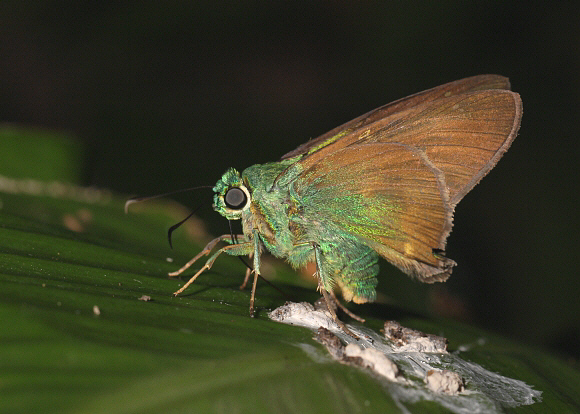
Introduction
The tribe Eudamini includes 44 genera in the neotropical region, amongst which are the Long-tailed Skippers Urbanus, Chioides and Aguna; and such familiar genera as Phocides, Autochton, Astraptes and Calaenorrhinus.
The genus Astraptes, comprises of 29 large species characterised by having chocolate brown wings with very short stubby tails on the hindwings. Most species have a diagonal hyaline stripe across the forewings and a group of 3 small hyaline spots near the apex. In the majority of species the head, thorax, abdomen and wing bases are covered with long fur-like gleaming metallic blue ( or in the case of talus, green ) scales.
Astraptes talus is a widely distributed species found from Mexico to Peru. It also occurs on several of the Caribbean islands including Cuba, Hispaniola, Jamaica and Trinidad.
Habitats
This species occurs in forested habitats at altitudes between sea level and about 800 metres.
Lifecycle
To be completed.
Adult behaviour
The butterflies have a very rapid whirring flight, often circling widely at a height of about 2 metres. They commonly settle on living foliage or dead leaf litter to feed at bird droppings, and at such times become so engrossed that they are oblivious to human presence. When feeding they exude droplets of water from their abdomens, dropping or squirting it onto the bird droppings to dissolve and liquefy them, enabling the juices to be sucked up using the long proboscis, which is extended under the abdomen.
